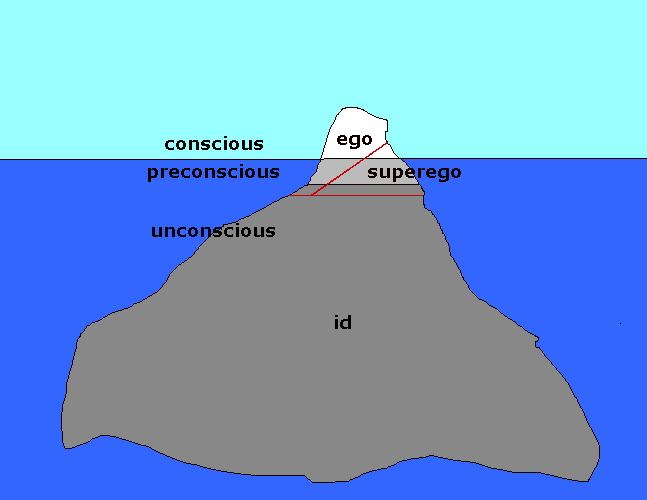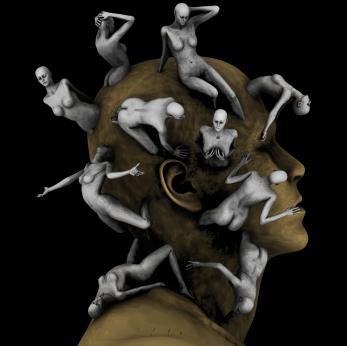
It is quite strange how much we live and act, but at the same time we don’t think about it. Every day we move, we walk, we eat, we think, we wish and we talk, but what is behind that? Why we do what we do, why do we shake hands when we meet someone or why don’t we ever think about being here or what is beyond life and why did someone give this name to every minute of all our days, ‘life’? There are millions of question that no one could answer and that is what we have to do; if we want to understand why we are here we will have to understand how we came here and the only thing we can do, is just giving hypothesis, hoping that one of them will be the one we have been looking for. Unfortunately, all we can say are words, unnecessary and simple if we take them one by one, but they can generate great ideas if we take them as a whole. Maybe someone can think that all these words have nothing to do with the explanation of dreams, but Medarol Boss said that dreams show how we see our existence. It may sound strange, but why can’t it be true? Who knows why we are here?
Mark Twain said that the two most important days of our lives are: the day we were born and the day we find out why. No one has found why we are here and I don’t think anyone on earth can ever find that. In medicine, if we find the cause, we can easily find the cure and if we find out how or why we are here, we will be able to know how to make life our slave, but life will never allow this to human beings.
There have been some critical ideas in the history of humanity. Copernicus believed that the earth was the center and everything else came around it. Galileo Galilei said that the Sun was the center and the whole planets rotate round it, but it is weird what people believe nowadays. We live in an egocentric world, where people think they can know and explain everything.

In fact, there are almost 6 billion people in the world and each of them has their own world and no one can know what is happening inside. However, no matter how different we might be, no matter how much we know or how well we express ourselves, we all have something in common; we all SLEEP and we all DREAM.



"When anything is possible, then nothing scientific can really develop." This was Freud's work. Freud's dream theories state that "the interpretation of dreams is the 'Royal road' to the discovery of the unconscious." This seems to mean that dreams set the stage to what we really think and feel in our unconscious state. His four basic arguments build on each other: 1.) "Dreams are the fulfillment of a wish ", 2.) "Dreams are the disguised fulfillment of a wish", 3.) "Dreams are the disguised fulfillment of a repressed wish", and 4.) "Dreams are the disguised fulfillment of a repressed, infantile wish".
However, the Freud’s theories about the dreams are still under dispute, but the science of oneirology is still developing and trying to understand what happens during our sleep. However, people keep on guessing what may be in our dark side of every single night. Why does only brain stay active whereas all the other parts of the body paralyzes? Or can we consider sleep and loss of dreams are the same thing? What if dreams are reality and reality are just dreams and when we die we wake up? There are millions of question we can create to get millions of missing answers. However, this is still one of the miracles of staying alive: knowing that endless neurons are active now when I’m writing and when you are reading. There are endless reactions happening in our body and we don’t have enough time to think about all of them. Carl Jung said that who looks outside, dreams and who looks inside, awakes. Everything we don’t know is standing inside us, waiting to be revealed. If we don’t know what is happening inside our bodies every single second we stay alive, we will not be able to understand what is going on with the rest of the world, because life is not a single line with an end and a finish point. Life is a circle of continuous changes in it. Nothing is lost or disappeared; things just are transformed in something else. A dream is not lost when we awaken. It still exists, even though in another form, even though we don’t have any idea about it.

We already know that we have missed millions of ideas from previous people and we will still miss endless interpretations of life, dreams and sleep. We cannot afford such limitless information that travels around the world, but we can start by asking a simple question when it comes to the grammatical formation, but it is the most difficult and essential question of the universe: Why are we here in this moment, in this century, in this country, dreaming dreams we can or cannot remember and asking this question?

***
Posted by: Livia Qose, Yıldırım Beyazıt University School of Medicine.

Hiç yorum yok:
Yorum Gönder